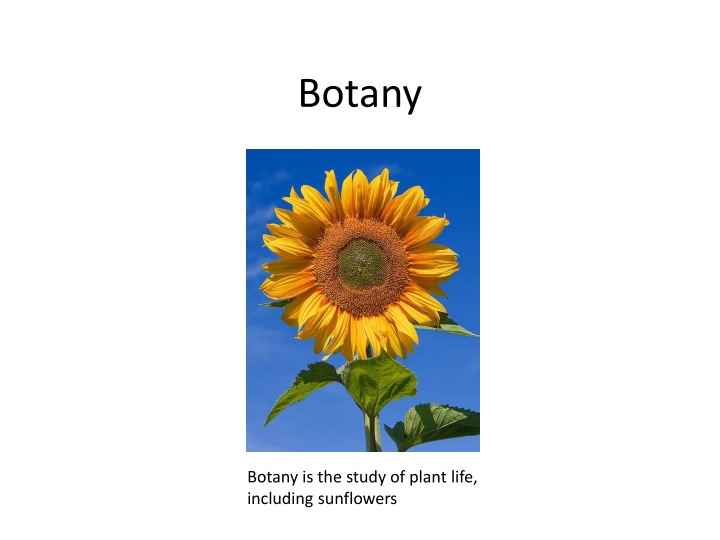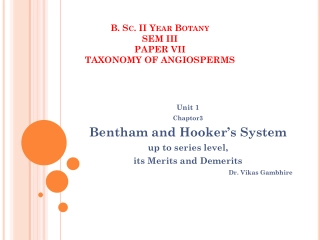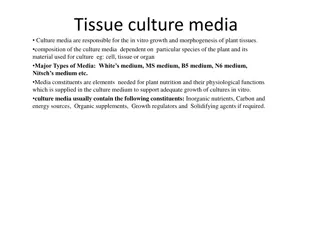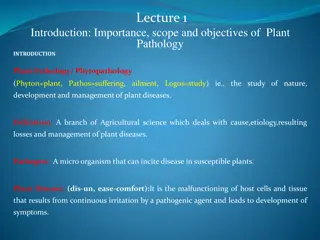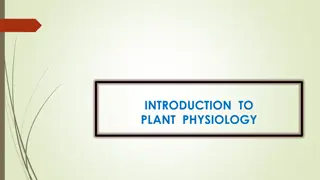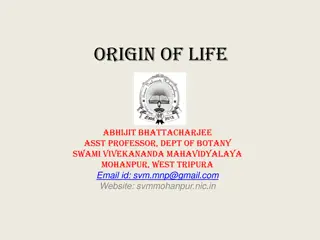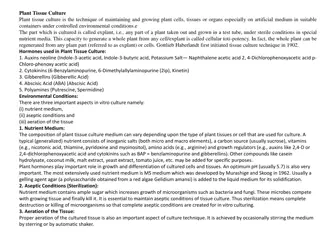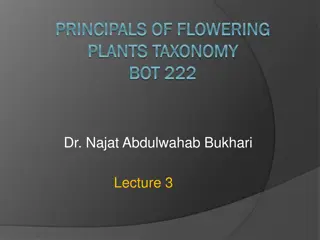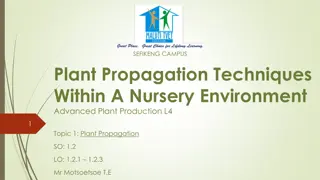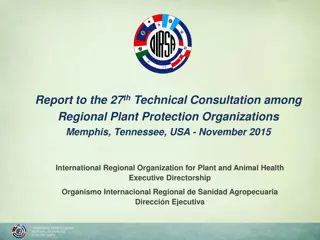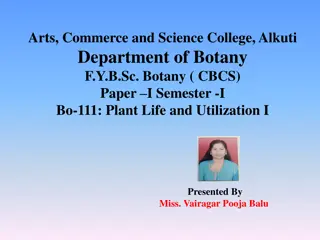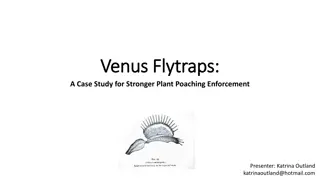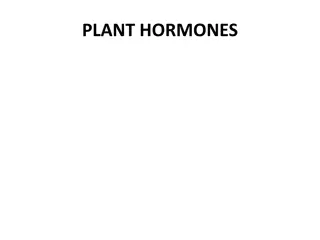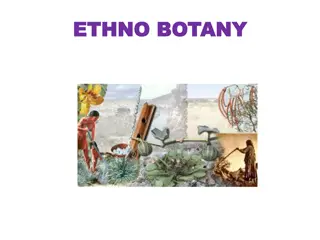Overview of Botany: Study of Plant Life and Its Importance
Botany, the study of plant life, encompasses a wide range of topics from herbalism to modern scientific discoveries. Understanding botany is crucial as plants provide food, medicine, and essential products for life. This field has a rich history dating back to ancient civilizations and continues to play a vital role in advancing biological knowledge. Explore the significance of plants through examples of early botanical texts, important discoveries, and the role of botanical gardens in research and education.
Download Presentation

Please find below an Image/Link to download the presentation.
The content on the website is provided AS IS for your information and personal use only. It may not be sold, licensed, or shared on other websites without obtaining consent from the author.If you encounter any issues during the download, it is possible that the publisher has removed the file from their server.
You are allowed to download the files provided on this website for personal or commercial use, subject to the condition that they are used lawfully. All files are the property of their respective owners.
The content on the website is provided AS IS for your information and personal use only. It may not be sold, licensed, or shared on other websites without obtaining consent from the author.
E N D
Presentation Transcript
Botany File:Sunflower sky backdrop.jpg Botany is the study of plant life, including sunflowers
What is Botany? Botany, also called plant science or plant biology, is the science of plant life and is part of biology A scientist who studies plants can be called a botanist or a plant scientist Botanical is an adjective used to describe something related to botany Botany began thousands of years ago as herbalism (the study and use of plants as medicine)
Why Study Plants? Plants are used as food and give humans and other animals the energy they need to live Plants also make many medicines and products for people The more people know about plants, the better we can keep them and use them http://upload.wikimedia.org/wikipedia/commons/thumb/e/e7/Brown_rice.jpg/250px-Brown_rice.jpg The food we eat comes directly or indirectly from plants such as rice.
Early Botany Examples of early botanical texts have been found in texts from India from before 1100 BC, and from China before 221 BC The ancient Greeks started botany in Europe The ancient Greek philosopher Theophrastus (371 287 BC) is sometimes called the "Father of Botany"
Discoveries Many important biological discoveries started with plants. Here are two: In 1665 Robert Hooke discovered the basic unit of living things, cells, in plants In the 1800s Gregor Mendel did experiments with pea plants that showed how the characteristics of living things are passed from parents to children (genetics) http://upload.wikimedia.org/wikipedia/commons/thumb/f/fe/RobertHookeMicrographia1665.jpg/170px-RobertHookeMicrographia1665.jpg A drawing of cells by Hooke
Botanical Gardens A botanical garden is an area with many different plants used for research and education European botanical gardens started as gardens for plants to be used as medicine Today, most botanical gardens are open to the public Some plants in the University of California botanical garden
What do I know about plants? True or False True or False 1. All plants do photosynthesis. F 2. All plants need water and nutrients. T 3. All plants make flowers. F 4. All plants make seeds. F
4 Main Groups of Plants Vascular means that the plant has a transport system. Transport means tubes that can carry water and nutrients. Nonvascular plants lack transport & seeds Seedless vascular plants have transport, lack seeds Gymnosperms (vascular) - have seeds, but not in shells Angiosperms (vascular) - seeds in shells, flowers Ginko trees have seeds but no flowers. What group does it belong to?
Botany Today Modern botany is a big subject with many different areas of research Botanical research is useful in providing foods, chemicals, energy, medicine, and materials for construction File:Potato plant.jpg Potato plant. Potatoes spread to the rest of the world after European contact with the Americas and have since become an important food source.
